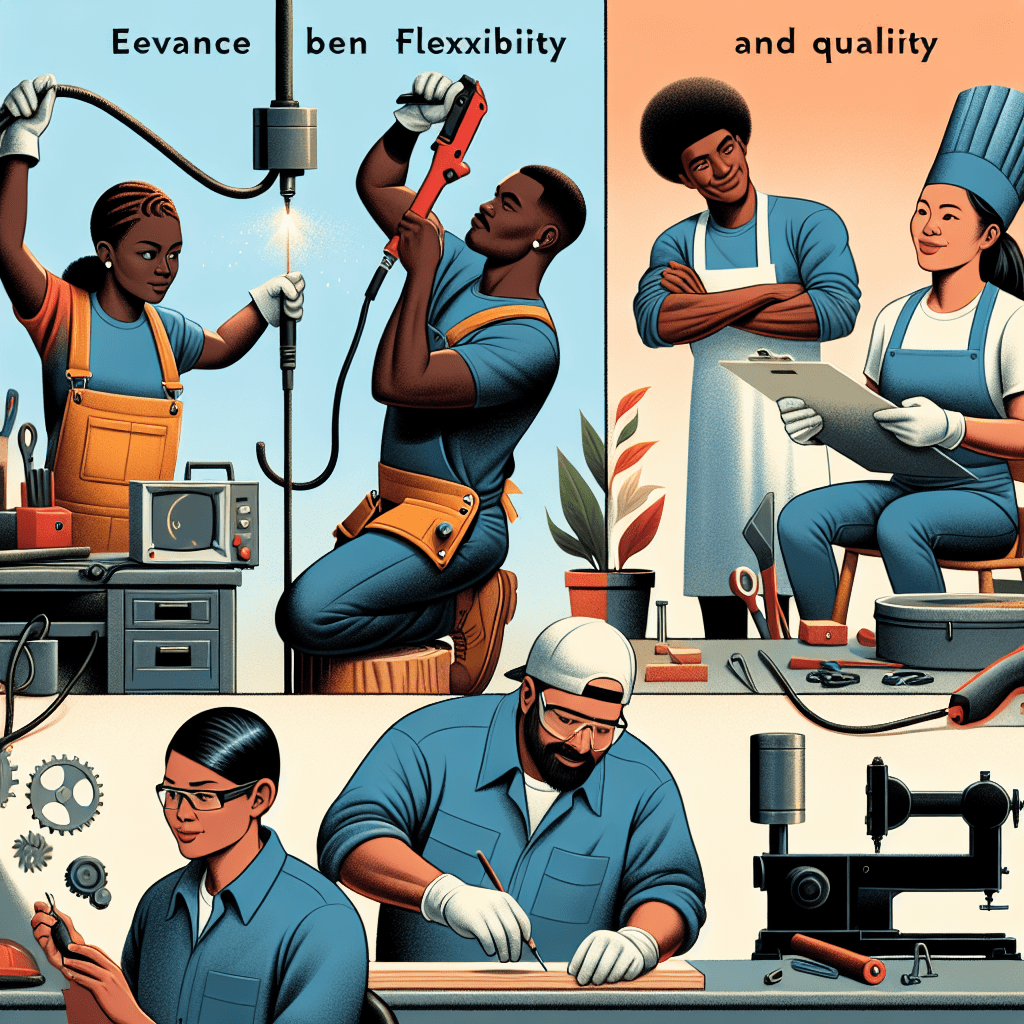
Balancing Flexibility and Quality in Apprenticeships

Are We Sacrificing Quality for Flexibility in Education?
Let’s be honest; the conversation around education often feels like a game of tug-of-war. On one end, we have flexibility, and on the other, quality. Recently, Ofqual raised quite a stir by calling out the Department for Education’s assessment principles for apprenticeships. They are leaning heavily towards flexibility and choice, leaving consistency in assessment gathering dust. Let that sink in for a moment.
When we prioritise flexibility over a standardised assessment approach, we risk compromising the very essence of apprenticeships. Now, this doesn’t mean flexibility isn’t important. It absolutely is! But it begs the question: can we genuinely call it quality education if the measurements of success vary so wildly?
The Importance of Balance
At City Skills, we believe every learner deserves fair and consistent evaluation. It’s not just a matter of ticking boxes; it’s about setting them up for success in the ever-evolving workforce. Here are a few thoughts that underscore this view:
- Flexibility is vital, but it shouldn’t come at the cost of assessment quality. It’s a delicate balance but one worth striving for.
- Consistency creates equality. When all apprentices are assessed using the same criteria, we’re helping to level the playing field.
- Quality assessments foster trust. Whether you’re a learner or an employer, knowing that an apprenticeship is assessed uniformly makes all the difference.
By incorporating both quality and flexibility into the equation, we can drive the effectiveness of apprenticeships. We’re not just nurturing talent; we’re preparing future leaders.
What Does Quality Look Like?
Imagine walking into a workplace where every team member has received the same quality of training. Each apprentice has been evaluated on the same scale, ensuring that they possess the skills necessary to succeed. This is the dream scenario, and a high-quality assessment framework plays a vital role in making it a reality.
Now, let’s take a moment to reflect on a personal experience. A few years back, I mentored a young man who was keen on pursuing an apprenticeship in IT. His enthusiasm was unquestionable, but the inconsistency in how apprentices were assessed left me worried about what he might face in the industry. What if he had to compete for a job against someone who had received a more rigorous assessment? It wasn’t just about him; it was about the future of the entire sector.
What’s Next for Apprenticeships?
As we delve deeper into this topic, it’s vital to consider how we see the role of assessment evolving. Are we ready to embrace a model that values both flexibility and quality? How can we create systems that elevate learners rather than hinder them?
We need a collective effort to strike this balance. With the right mindset and structures in place, we can foster an educational environment that prepares apprentices for success while still allowing for the flexibility they crave.
So, what do you think? How do you envision the future of assessment in education, especially in apprenticeships? I’m genuinely interested in hearing your take. Let’s keep this conversation going. After all, the quality of our education is a collective responsibility, and every opinion matters.
If you’re passionate about improving education and apprenticeships, why not share your thoughts with us? Together, we can make a difference.
#Education #Apprenticeships #CitySkills



